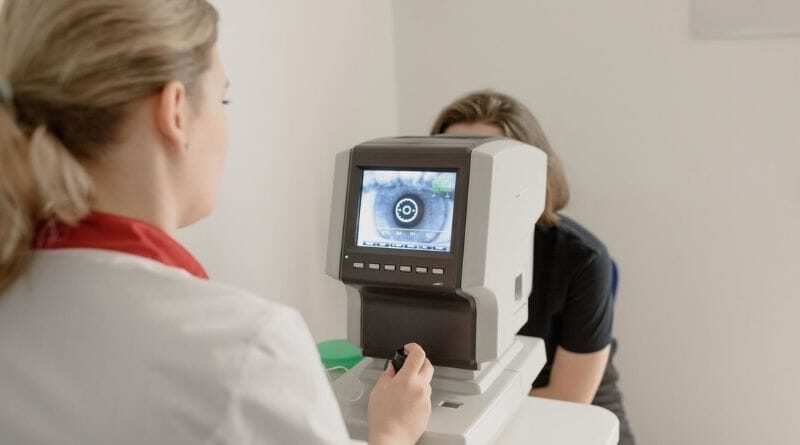Finding the Best Eye Hospital in the UAE
It can be challenging to find the best eye hospital in the UAE because of the countless options available. However, the following guidelines below can help make the search easier for you.
Table of Contents
An Optician, Optometrist, or Ophthalmologist?
Opticians, optometrists, and ophthalmologists are all eye care specialists, but they vary in their levels of training and capabilities.
Opticians
Opticians are eye technicians trained in designing and fitting corrective eye devices such as eyeglasses and contact lenses. They may not diagnose vision or write visual correction prescriptions, but they can fulfill said prescriptions.
Optometrists
Optometrists are professionals who have been trained to provide primary vision care. They are licensed to test and correct vision problems. They may conduct eye exams, diagnose vision problems, detect eye diseases and abnormalities, and prescribe vision corrective lenses (and medications in some countries).
Optometrists have a doctor of optometry degree, obtained after four years in optometry school, which comes after getting a college degree. Some optometrists may have even undergone one year in optometry residency. However, they are not medical doctors.
Ophthalmologists
Ophthalmologists are medical doctors whose specialization is in eye diseases and conditions that necessitate vision care. As medical doctors, they have a college degree, and in the US they must have undergone at least eight years of medical training after college. Four years of medical training, one year of internship in medicine or surgery, and three years of residency in ophthalmology typically comprise these eight years of medical training.
Ophthalmologists may also undergo fellowship or a further one or two years of training in a subspecialty area. After such specific training, an ophthalmologist can become a subspecialist in the field of neurology, pediatrics, cornea, retina, glaucoma, plastic surgery, or other such subspecialties.
Ophthalmologists have the most advanced training and capabilities of eye specialists. They can do all that optometrists can. They can diagnose and detect vision problems and eye pathologies, prescribe corrective lenses, and treat with medication. However, unlike optometrists, ophthalmologists can perform surgeries and are often involved in research on eye diseases and treatment modalities.
Read: Why Do My Eyes Hurt?
The Doctor You Need
The type of eye specialist you need will depend on your condition. For instance, if it’s simple shortsightedness and long-sightedness, then an optometrist can treat you and prescribe corrective lenses. The optician can make you the required device according to the optometrist’s prescription.
In myopia, moreover, a doctor of optometry who has orthokeratology training can prescribe special molds or lenses that you can wear to sleep. These special lenses gently reshape the curvature of the eye overnight. This reshaping means a temporarily improved vision, such that you may no longer need to wear corrective eyeglasses or contact lenses during the day.
Optometrists can also help diagnose eye diseases like glaucoma and cataracts and refer to an ophthalmologist for treatment. You need an ophthalmologist for advanced pathologies that go beyond an optometrist’s training to diagnose. An ophthalmologist is qualified to do laser surgery and other surgical modalities of treatment, as per their choice of sub-speciality.
Of course, you are unlikely to know which type of specialist you need before going to an eye hospital for diagnosis. So, the best way to begin would be to go to an eye center. Such an eye center will have both optometrists and ophthalmologists.
Optometrists can check your eye first. If you need corrective lenses, they or their in-house opticians will make them for you. If you need more advanced care and treatment, it will be a seamless transfer to one of the center’s ophthalmologists. There will be no need for referrals and no need to transfer clinics.
Read: Retinal Vein Occlusion
Evaluating Eye Centers
But which eye center should you pick? An internet search for “eye doctor Dubai” will yield numerous results. Use the following criteria to evaluate eye centers, eye clinics, and eye hospitals.
Pioneering in Modern Techniques
Eye medicine is hardly a static field. For instance, while orthokeratology was introduced in 1962, the poor technology and lack of knowledge about myopia hindered the widespread adoption of this method. It took around 50 years before the technology and knowledge caught up to deliver consistent results.
Therefore, you want an eye center whose doctor is at the forefront of eye medicine and technology. If you know the procedure you need, look for the ophthalmologist that almost all people consult for that particular procedure. That would speak about that doctor’s pioneering record in that specific procedure.
To illustrate, suppose you need a cross linking eye doctor in Dubai. It is safe to say that an ophthalmologist who brought crosslinking to Dubai, consults in other clinics, and performs crosslinking procedures in various hospitals around the city is probably the doctor you want.
Proven Experience
Of course, you want doctors who have decades of experience in eye care and medicine. You should check the website of the hospitals you’re considering. Look for the credentials of the hospitals’ eye doctors.
Do not take the listed credentials at face value. You should do your research to verify such credentials. One way you can do this is by performing a name search in regulatory bodies’ databases.
Memberships
Check for your candidate doctors’ memberships and affiliations. Regulatory bodies and industry-specific associations have definite standards for inclusion. To become members, doctors must comply with such standards.
A doctor’s memberships and affiliations are a good indication of a doctor’s compliance with established industry practices, which exist to protect patient welfare and well-being.
Therefore, a Dubai eye doctor who is a member of the European Society of Cataract and Refractive Surgeons, American Academy of Ophthalmology, General Medical Council, and American Academy of Orthokeratology and Myopia Control, among others, is probably someone competent and reliable.
State-of-the-Art Equipment
Check on the hospital’s equipment. You can ask the eye hospital for a tour of its facilities.
All other things being equal, your eye doctor can only perform as well as their equipment allows. Therefore, you want a clinic with the most modern equipment. For sure, you want LASIK done using state-of-the-art rather than nearly obsolete equipment.
Referral
Your general practitioner or family doctor can refer you to a reputable eye hospital, and this is the simplest way to find an eye doctor.
However, you should not leave it up entirely to your GP. You must still do your part and perform due diligence. Evaluate the eye hospital your GP referred to you according to its techniques, equipment, experience, and memberships.
If the eye hospital referred does not pass muster, feel free to go somewhere else.
Read: Tips to Keep Your Eyes Healthy
The Best Eye Hospital for You
Choosing an eye doctor is not a decision anyone should take lightly. You want a competent and capable eye doctor who will diagnose you properly and treat your condition correctly. While you may begin your search with your GP’s referral, do not forget to conduct a more exhaustive search and carefully evaluate your options according to your condition.
AUTHOR BIO
Dr. Millicent M. Grim, Specialist Ophthalmologist & LASIK Specialist, is the Medical Director of Gulf Eye Center in Dubai. Since 2002, Gulf Eye Center’s highly qualified ophthalmologists and optometrists/ODs have been successfully treating a wide range of eye conditions using advanced techniques. They also provide comprehensive eye care and vision restoration procedures for people of all ages.
Recommended Articles:
Need to Know About Choosing Health Insurance for Dependents




